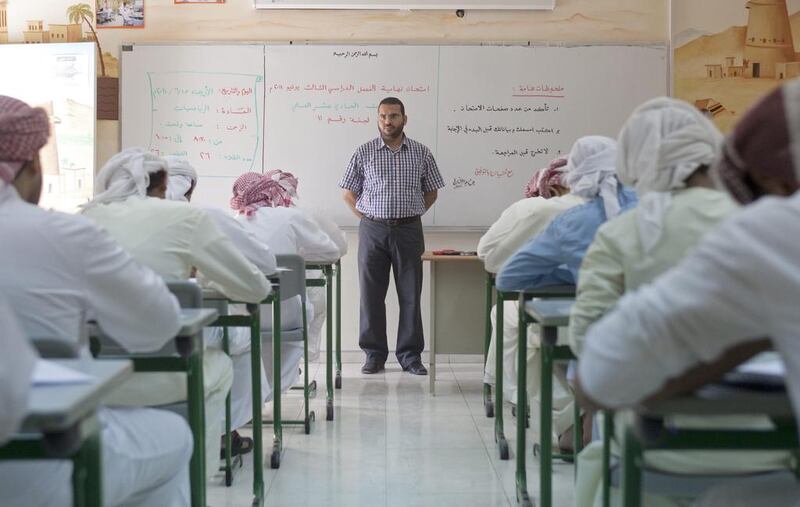The academic success of our students is something to celebrate. As The National reported yesterday, results of the advanced Grade 12 examinations in public and private schools that follow the Ministry of Education's curriculum showed that more than 90 per cent of pupils have passed this year.
We congratulate all those who passed and especially the students who achieved astonishing results, including Amin Fraij (99.8 per cent), Laila Khanfar (99.8 per cent) and Amal Al Kaabi (99.3 per cent). Their hard work has, indeed, paid off and now they can focus on the next step in their lives and choose from the wide range of opportunities that will present themselves to them.
But are these results enough for us to believe that our students are getting the best education they can get? Are they a real indication of students’ knowledge and ability to think for themselves, do well in life and, perhaps, innovate in the future?
Education systems around the world are reliant on end-of-school exams to determine students’ success. In a way, we are so obsessed with results that we forget to recognise other important qualities. Parents choose schools for their children based on past exam results. Pupils are constantly pressured to get high marks. It can make them anxious, depressed or sleep deprived. It can affect their diet. Some parents push their children to breaking point in the pursuit of better grades.
Global education systems were designed and conceived in a different age: an age where knowledge was not easily acquired. Such a system is based on standardisation, on rigid curriculum and on limited mindset. In many parts, it’s based on memorisation rather than deep thinking and enquiry.
Today, we live in a world where information is easily accessible. We have an economy that depends on creativity and innovation. Our students need to be curious and open-minded, and have the ability to think critically, make connections and find their own questions and their own answers. There are so many skills that we can focus on, ones that may not come in a final exam.





